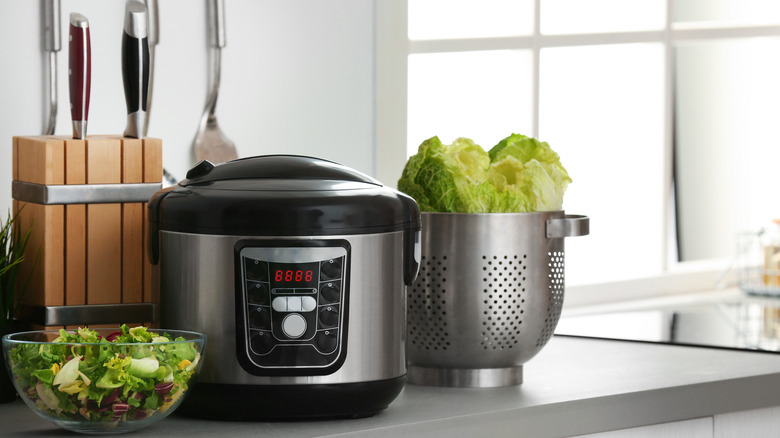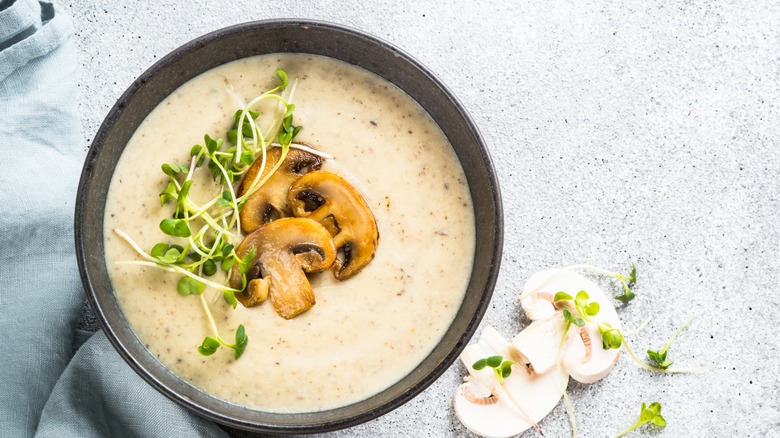Why You Should Wait Before Adding Dairy To The Slow Cooker
Slow cookers live up to the hype — that is, when they're used correctly. A kitchen appliance that is based on convenience and simplicity, most crock pot recipes involve adding all ingredients at once and letting everything bake at low temperature over an extended period. But, when it comes to crafting your cheesiest, creamiest recipes, you should probably wait before adding dairy to your slow cooker for a few reasons.
Developed as a means of making stew for the Jewish Sabbath, inventor Irving Nachumsohn first patented the slow cooker in 1940, reports Smithsonian Magazine. A way to prepare meals without turning on appliances like the oven, the slow cooker remains helpful when trying to beat the summer heat and organizing huge feats requiring every oven rack and stove burner to be occupied.
Along with convenience, PennState Extension notes that low-temperature cooking also has many gustatory advantages like accentuating flavors and tenderizing even the toughest cuts of meat. One peril, however, is the risk of slow-cooking dairy-based ingredients.
To avoid separation and curdling, add dairy at the end
When it comes to adding milk, cream, or cheese to a crock pot, you should definitely exercise a bit of caution. According to Eat This, Not That, adding dairy at the start of cooking can cause curdling. Basically, as dairy is heated, levels of lactose and pH drop, causing proteins to denature and form lumps, explains National Geographic.
While this curdling is beneficial when making cheese, it's a process that's best avoided when trying to make velvety soups, stews, and casseroles. So, in order to avoid any grittiness or lumpiness caused by overheated dairy, stir in any creamy additions towards the end of the cooking process so that the dairy can maintain its silky texture and rich taste.
Interestingly, one exception for adding dairy earlier is in the case of evaporated milk. Given that 60% of its moisture has been extracted, The Kitchn notes that separating won't occur when cooked over a prolonged period.

